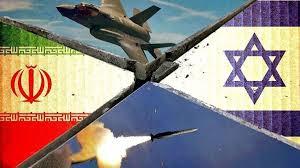
Ceasefire: A Limited Opportunity for Surrender and Change
Political wisdom required that the Islamic Republic, following two significant events — the U.S. withdrawal from the JCPOA and the assassination of Qassem Soleimani — recognize that the era of regional chest-thumping and ambitious rhetoric had come to an end. At that point, it should have at least fundamentally reformed its confrontational and incompatible foreign policy, regardless of whether it reformed or continued its destructive domestic policies. The reality is that the foundations and dynamics of foreign policy are fundamentally different from domestic politics.
What some international relations theorists say — that foreign policy is an extension of domestic policy — is meant only to highlight the influence of key domestic actors whose views shape foreign policy. It does not mean that foreign policy is truly a continuation of domestic policy. The most prominent example of this is China, whose foreign policy is in many ways the opposite of its domestic policy. The strategic misinterpretation by Ali Khamenei and his allies in the IRGC of the hidden message behind the U.S. withdrawal from the JCPOA and Soleimani’s assassination led to a continued insistence on failed foreign policy strategies.
"Change blindness" is a psychological phenomenon in which a person fails to notice significant changes in a visual scene, even if those changes are directly in front of them. Applied to politics, it means the regime ignored the profound implications of those two events and dismissed the "maximum pressure" campaign. Rather than accepting Trump’s conditions for a new agreement, it insisted the JCPOA was still alive and would continue with the other signatories.
Ironically, this nonsense was declared by the then-president — whose name is now being floated for leadership after Ali Khamenei’s eventual departure and the diminished prospects of Mojtaba Khamenei as his successor. If Biden and the Democrats had intended to return to the JCPOA, they would have done so long before Trump’s potential return to the White House. Not only did this not happen, but due to Iran’s drone support to Russia in the Ukraine war and its increased uranium enrichment, Biden — in a national security memo before leaving office — identified Iran as America’s top security threat. If political intelligence had existed within the regime, it would have pondered this deeply and asked itself: what preparation does it have to face bombing instead of negotiation?
Beyond the two events mentioned at the beginning, the October 7 operation triggered a series of incidents, any one of which alone would have justified a fundamental shift in foreign policy. But the denial of failure in proxy warfare, the outright rejection of negotiation, and the persistence in war have left no outcome other than eventual bombing — especially now that Assad has fled Syria for Russia and the leaders of Hezbollah and Hamas are either dead or in hiding.
The ceasefire following the 12-day war is not based on international law, a binding resolution, or even a formal UN Security Council session. It is merely a result of an agreement between Israel and the U.S. to give the political and military leadership of the Islamic Republic a final opportunity to begin meaningful negotiations on fundamental transformations and serious guarantees for regional stability. It has two main pillars: negotiations over ballistic missiles and uranium enrichment, and the Abraham Accords and the regional security order.
If the regime does not move toward direct negotiations with the U.S. with the intention of initiating broad changes, a new military operation will soon begin — one that will continue until either a new political order or at least a new power arrangement emerges in the Islamic Republic. Regrettably, political activism among most opposition groups inside Iran today is largely limited to web-based activities, resulting in the rise of political celebrities. Unfortunately, there is no cohesive or structured political organization.
As a result, even prominent activists with tens of thousands of followers on social media have nothing to offer in the real political arena, where actual power dynamics play out. Due to this limitation, their future roles — even in a potential transition — will remain confined to their current activities.
My prediction is that a new political order — whether through a continued ceasefire (which would mean surrender and change) or its collapse (which would initiate renewed military operations to force change) — will emerge from within the current system.

